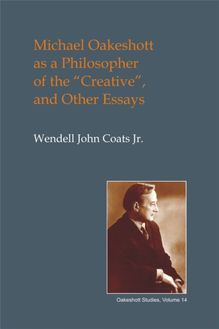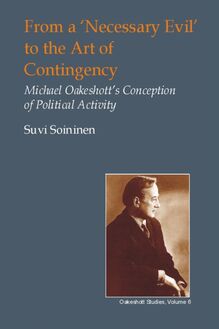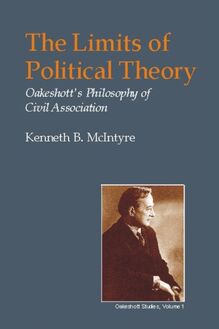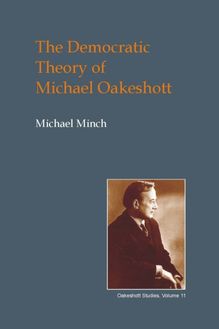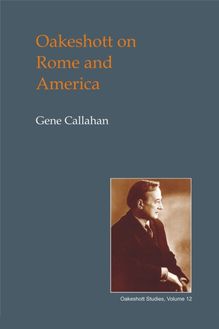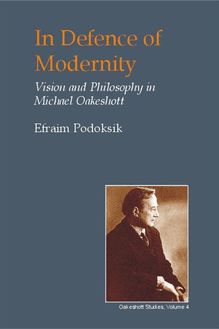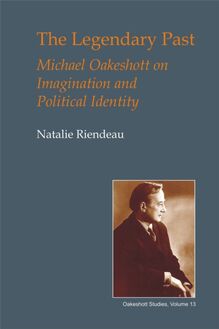-
 Univers
Univers
-
 Ebooks
Ebooks
-
 Livres audio
Livres audio
-
 Presse
Presse
-
 Podcasts
Podcasts
-
 BD
BD
-
 Documents
Documents
-
- Cours
- Révisions
- Ressources pédagogiques
- Sciences de l’éducation
- Manuels scolaires
- Langues
- Travaux de classe
- Annales de BEP
- Etudes supérieures
- Maternelle et primaire
- Fiches de lecture
- Orientation scolaire
- Méthodologie
- Corrigés de devoir
- Annales d’examens et concours
- Annales du bac
- Annales du brevet
- Rapports de stage
La lecture à portée de main
Vous pourrez modifier la taille du texte de cet ouvrage
Découvre YouScribe en t'inscrivant gratuitement
Je m'inscrisDécouvre YouScribe en t'inscrivant gratuitement
Je m'inscrisEn savoir plus
Vous pourrez modifier la taille du texte de cet ouvrage
En savoir plus

Description
Sujets
Informations
| Publié par | Andrews UK |
| Date de parution | 06 mars 2017 |
| Nombre de lectures | 0 |
| EAN13 | 9781845406028 |
| Langue | English |
Informations légales : prix de location à la page 0,0750€. Cette information est donnée uniquement à titre indicatif conformément à la législation en vigueur.
Extrait
The Meanings of Michael Oakeshott’s Conservatism
Edited by Corey Abel
imprint-academic.com
2017 digital version by Andrews UK Limited
www.andrewsuk.com
Copyright © Imprint Academic, 2010
The moral rights of the authors have been asserted.
No part of this publication may be reproduced in any form without permission, except for the quotation of brief passages in criticism and discussion.
Imprint Academic, PO Box 200, Exeter EX5 5YX, UK
Published in the USA by Imprint Academic,
Philosophy Documentation Center
PO Box 7147, Charlottesville, VA 22906-7147, USA
Full details of additional titles in the Oakeshott Studies series; www.imprint-academic.com/idealists
List of Contributors
Corey Abel teaches at Metropolitan State College of Denver, and holds degrees from Colorado College, London School of Economics, and the University of Chicago. He rock climbs to relax.
Josiah Lee Auspitz is an independent scholar living in Somerville, Massachusetts.
Todd Breyfogle is Director of Seminars at the Aspen Institute. He is a graduate of Colorado College; Corpus Christi College, Oxford; and the University of Chicago’s Committee on Social Thought.
Gene Callahan is an adjunct professor of economics at SUNY Purchase, a charter member of the Michael Oakeshott Association, and the author of Economics for Real People .
George Feaver was Professor Emeritus of Political Science at the University of British Columbia. He passed away on May 12, 2008.
Richard E. Flathman is The George Armstrong Kelly Memorial Professor of Political Science, Emeritus, at Johns Hopkins University, and the author of Pluralism and Liberal Democracy, which discusses the work of Michael Oakeshott.
Timothy Fuller is Professor of Political Science at Colorado College and past president of the Michael Oakeshott Association.
Michael Henkel, University of Leipzig, works in the fields of political theory and the history of political thought; spends his leisure time with his family - or reading or mowing the lawn.
Ferenc Horcher, Ph.D., is Chair of the Department of Aesthetics, Pazmany Peter Catholic University, Hungary. His research fields include the history of political and aesthetic thought.
Byron Kaldis is Associate Professor of Philosophy, Hellenic Open University, and contributor of “Oakeshott on Science” in the forthcoming Cambridge Companion to Oakeshott.
Leslie Marsh is Assistant Director at New England Institute of Cognitive Science and Evolutionary Studies and Associate Researcher in the Department of Pathology and Laboratory Medicine at the University of British Columbia.
Kenneth McIntyre is an assistant professor of political science at Concordia University in Montreal, Quebec. He is the author of The Limits of Political Theory: Oakeshott on Civil Association .
Attila K. Molnar, Professor of the History of Ideas at Eotvos University and Pazmany Peter Catholic University, has written on the Protestant ethic in Hungary, and Edmund Burke. He has two children, and enjoys walking his dog in nearby oak forests.
Ivo Mosley is an independent scholar and freelance writer based in England. His book, on misrepresentations of democracy and freedom in the West, is forthcoming from Imprint Academic in spring 2011.
Jeff Rabin is a Research Associate at Trinity College, University of Toronto, in the Department of Divinity and is working on a book tentatively titled Barbarians Within the Gates .
Ian Tregenza teaches political theory at Macquarie University, Sydney. He is the author of Michael Oakeshott on Hobbes: A Study in the Renewal of Philosophical Ideas.
Roy Tseng is Professor of Political Theory at National Sun Yat-sen University, Taiwan. He is an admirer of Oakeshott, the MLB pitcher Chien-Ming Wang, and comedian Stephan Chou.
Stephen Turner is Graduate Research Professor of Philosophy at the University of South Florida and a devoted Alfisto. He lives on Pass-a-Grille Beach in Florida.
Memorial to George Feaver, 1937–2008
I met George for the first time in the fall of 1979. I was then a Visitor to the Government Department at The London School of Economics. George was making one of his frequent visits to his old haunts and, in particular, visiting his mentor, Maurice Cranston. We met for coffee in the Senior Common Room, had a friendly visit, and then he was off on his travels. A few years later I met him again in Vancouver. The Canadian Learneds were holding their annual meetings at the University of British Columbia. My friend and colleague, Robert Orr of the LSE, and I had proposed a panel on Hobbes’s political philosophy, with assistance from George and from Bill Mathie of Brock University. It was on this occasion that George and I spent time together and began to really know each other. He showed us around Vancouver (my first visit there but the first of numerous trips to Vancouver). George turned out to be a sort of polymath about British politics since the nineteenth century, and a fund of stories about the LSE. This fit well with me since I had written my doctoral thesis on John Stuart Mill, and had become a fan of the LSE Government Department, which was, in my opinion, in its golden age. Like George, I have visited London every year for many years, until 1990 primarily to see Oakeshott, Shirley and Bill Letwin, Ken Minogue, Maurice Cranston, Maurice Cowling at Cambridge, and the others, and I still visit even though most of them are gone from the scene.
Michael Oakeshott, the Letwins, Elie Kedourie, Maurice Cranston, Ken Minogue, Robert Orr, John Charvet, and many others were essential participants in that LSE scene. It was an exciting venue for us political theorists. George and I shared all this in common. Later in the 80s, I was assisting a colleague in the Romance Language Department at Colorado College to inaugurate a program of ‘North American Studies’. This was to be a comparative study of Canada, Mexico, and the United States. I taught summer courses comparing Canada and the USA, and eventually took a group of students to Canada in the first of what turned out to be a decade-long program of comparative study excursions. Before that, however, I had invited George to visit Colorado College to give some talks to students about Canadian culture and politics, and we spent a good deal of time exploring the Colorado Rockies. I last saw George at the 2006 meeting of the Michael Oakeshott Association where he delivered a paper, a version of which appears in this volume. We had dinner together and he regaled all of us Oakeshottians with endless stories of the ups and downs of his life which were numerous, a mixture of joy and sadness, and sometimes quite adventurous. I had hoped, alas, to see him at the 2009 meeting of the Michael Oakeshott Association.
George was great fun, an old fashioned citizen of the Republic of Letters and a natural exemplification of the world of liberal learning. I was happy to recommend him for a fellowship to engage in researching the Cranston archive at the University of Texas. He would no doubt have produced a vivid memoir of his teacher had he lived long enough to complete it. I think he also qualifies as a natural “Oakeshottian” in the sense that much of his life seemed to be an unrehearsed intellectual adventure.
Timothy Fuller, Colorado College, January 2010
List of Abbreviations
EM
Experience and its Modes
FS
The Politics of Faith and the Politics of Scepticism
HCA
Hobbes on Civil Association (Liberty Fund, 1990)
HCiv
Hobbes on Civil Association (Berkeley, 1975)
LHPT
Lectures in the History of Political Thought
MPME
Morality and Politics in Modern Europe
Notes IX
British Library of Economics and Political Science, Oakeshott Archives, LSE File 2/1/9
Notes XI
British Library of Economics and Political Science, Oakeshott Archives, LSE File 2/1/11
OH
On History and Other Essays (Basil Blackwell)
OHist
On History and Other Essays (Barnes and Noble)
OHC
On Human Conduct
RIP
Rationalism in Politics (Liberty Press, 1991)
RP
Rationalism in Politics (Methuen, 1962)
RPML
Religion, Politics and the Moral Life
SPD
The Social and Political Doctrine of Contemporary Europe
VL
The Voice of Liberal Learning (Liberty Fund, 2001)
VLL
The Voice of Liberal Learning (Yale, 1989)
WH
What is History? and other essays
To be conservative, then, is to prefer the familiar to the unknown, to prefer the tried to the untried, fact to mystery, the actual to the possible, the limited to the unbounded, the near to the distant, the sufficient to the superabundant, the convenient to the perfect, present laughter
-
 Univers
Univers
-
 Ebooks
Ebooks
-
 Livres audio
Livres audio
-
 Presse
Presse
-
 Podcasts
Podcasts
-
 BD
BD
-
 Documents
Documents
-
Jeunesse
-
Littérature
-
Ressources professionnelles
-
Santé et bien-être
-
Savoirs
-
Education
-
Loisirs et hobbies
-
Art, musique et cinéma
-
Actualité et débat de société
-
Jeunesse
-
Littérature
-
Ressources professionnelles
-
Santé et bien-être
-
Savoirs
-
Education
-
Loisirs et hobbies
-
Art, musique et cinéma
-
Actualité et débat de société
-
Actualités
-
Lifestyle
-
Presse jeunesse
-
Presse professionnelle
-
Pratique
-
Presse sportive
-
Presse internationale
-
Culture & Médias
-
Action et Aventures
-
Science-fiction et Fantasy
-
Société
-
Jeunesse
-
Littérature
-
Ressources professionnelles
-
Santé et bien-être
-
Savoirs
-
Education
-
Loisirs et hobbies
-
Art, musique et cinéma
-
Actualité et débat de société
- Cours
- Révisions
- Ressources pédagogiques
- Sciences de l’éducation
- Manuels scolaires
- Langues
- Travaux de classe
- Annales de BEP
- Etudes supérieures
- Maternelle et primaire
- Fiches de lecture
- Orientation scolaire
- Méthodologie
- Corrigés de devoir
- Annales d’examens et concours
- Annales du bac
- Annales du brevet
- Rapports de stage
